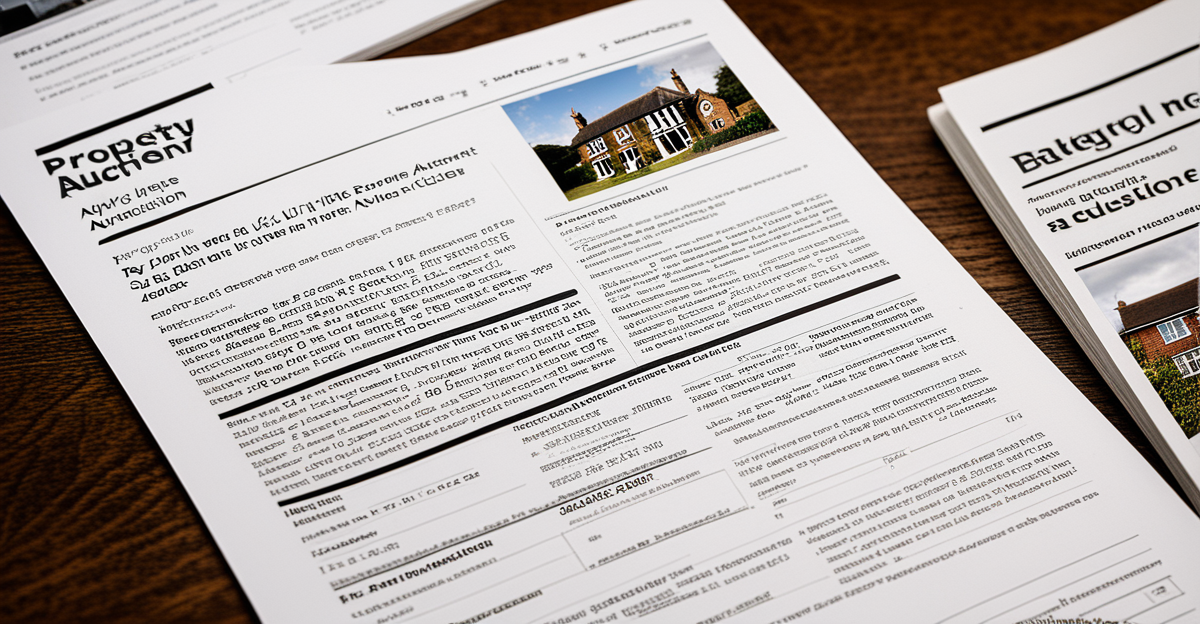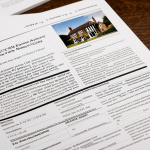Understanding UK Property Auctions: Key Concepts and Processes
Navigating UK property auctions requires grasping the fundamentals of the property auction process. Auctions typically involve a public sale where properties are sold to the highest bidder, often within a fixed timeframe. Understanding auction basics—such as guide prices, reserve prices, and auction deposits—is vital for bidders to prevent surprises.
There are several types of property auctions in the UK, including traditional in-room auctions, online auctions, and sealed-bid auctions. Each type differs in how bids are submitted and how quickly sales conclude. For example, online auctions allow bidding remotely, which offers flexibility but demands caution due to rapid bid increments.
In the same genre : Navigating uk landlord responsibilities: essential legal obligations in property rentals
The property auction process begins with registration and reviewing the legal pack. Bidders usually pay a non-refundable deposit immediately after winning, with completion deadlines as short as 28 days. This tight timeline underscores the importance of prior due diligence.
Understanding these core concepts allows buyers to approach UK property auctions with confidence, reducing risks and increasing the chance of securing attractive investment opportunities.
Also to discover : Exploring the effects of recent uk housing policy changes on future property development opportunities
Understanding UK Property Auctions: Key Concepts and Processes
Grasping the property auction process starts with understanding essential auction basics and terminology. In UK property auctions, key terms include the guide price—an indication of the seller’s expectations—and the reserve price, which is the minimum the seller will accept. Bidders should remember the reserve price may not always be disclosed and the final sale is often subject to it.
There are three main types of property auctions in the UK: traditional in-room auctions, online auctions, and sealed-bid auctions. Traditional auctions involve live bidding among participants present in a room. Online auctions let buyers place bids remotely, often with tight timeframes that require quick decisions. Sealed-bid auctions ask for confidential bids submitted by a deadline, where the highest bid wins without an open bidding contest.
The standard property auction process follows registration, a review of the legal pack, bidding, deposit payment, and swift completion—often within 28 days. This schedule demands prospective buyers conduct thorough research and act decisively. Understanding these mechanics helps bidders navigate the challenges and opportunities inherent in UK property auctions.
Common Pitfalls Buyers Face at UK Property Auctions
Understanding the property auction process helps, yet buyers often encounter pitfalls that jeopardise their investments. One major risk is underestimating hidden costs—beyond the deposit, buyers must budget for legal fees, auctioneer charges, and potential repair expenses. Ignoring these can turn a seemingly good deal into a costly mistake.
Legal complications also pose serious challenges. Issues like unclear title deeds or restrictive covenants can stall or even void a sale. Many buyers fail to spot these in the legal pack or misunderstand auction terms, leading to disputes post-purchase.
Misreading auction basics such as the reserve price or bidding conditions is another common error. For example, assuming the guide price represents market value can result in overbidding. Some buyers overlook “subject to contract” clauses or completion deadlines, exposing themselves to penalties or rushed decisions.
To navigate these pitfalls, careful review of all auction documents is crucial, alongside professional legal advice. Awareness of potential auction risks ensures bidders can act with confidence and avoid costly surprises in UK property auctions.
Understanding UK Property Auctions: Key Concepts and Processes
The property auction process in the UK involves clear stages that all bidders must understand to succeed. First, registration confirms bidder eligibility, followed by a detailed review of the legal pack, which contains essential documents like title deeds and contracts. This step is crucial for spotting potential legal or structural issues before bidding.
Understanding the three main UK property auctions types helps shape bidding strategy. Traditional in-room auctions feature live, competitive bidding and immediate results. Online auctions offer remote access but demand swift decision-making due to fast bid increments. Sealed-bid auctions require confidential offers by a deadline, removing open competition but heightening the importance of bid accuracy.
Key auction basics include knowing the guide price, which signals the seller’s expectations, and the reserve price, often undisclosed but binding. Upon winning, buyers typically pay a non-refundable deposit immediately and must complete the sale within a tight deadline, usually 28 days. These timelines underline the need for thorough preparation.
Grasping these elements of the UK property auctions and the property auction process ensures bidders avoid surprises and engage confidently in purchasing opportunities.
Understanding UK Property Auctions: Key Concepts and Processes
In UK property auctions, grasping the property auction process is essential for success. The process typically starts with bidder registration, ensuring eligibility and identity verification. Next is the review of the legal pack—this vital collection includes contracts, title deeds, and any restrictions affecting the property. Understanding this pack is crucial as it lays bare any potential liabilities or conditions tied to the sale.
Three distinct types of property auctions dominate the UK market: traditional in-room auctions, online auctions, and sealed-bid auctions. Traditional auctions feature live bids where immediate decisions and quick thinking shape outcomes. Online auctions provide accessibility and speed but require familiarity with digital platforms and fast-paced bid increments. Sealed-bid auctions, in contrast, demand confidential offers submitted by a strict deadline, putting emphasis on accurate valuation without competitive visibility.
Knowing auction basics helps streamline bidding. The guide price offers a seller’s estimate but does not guarantee sale price; the reserve price is the seller’s minimum acceptable figure but might not be disclosed. After a successful bid, a non-refundable deposit is paid immediately, and completion typically occurs within 28 days, emphasizing the need for thorough preparation and a clear timeline. Understanding these stages helps bidders navigate UK property auctions with confidence.
Understanding UK Property Auctions: Key Concepts and Processes
Understanding the UK property auctions requires clarity on key auction basics such as terminology, methods, and buyer timelines. At the heart of the property auction process are the guide price and reserve price: the guide price signals the seller’s expectations, but it is not binding, while the reserve price is the minimum the seller will accept, often undisclosed. This distinction helps bidders gauge how much to offer.
Three main types dominate the UK market: traditional in-room auctions, online auctions, and sealed-bid auctions. Traditional auctions involve real-time competitive bidding, requiring immediate decisions. Online auctions allow remote participation but feature rapid bid increments demanding quick judgment. Sealed-bid auctions require confidential offers by a deadline, making accuracy in valuation paramount as bids are not openly visible.
The property auction process itself typically includes registration, legal pack review, bidding, deposit payment, and sale completion—often within 28 days. Understanding this timeline is crucial for budgeting and arranging finances. Recognising these core concepts and procedural steps equips buyers to navigate auctions confidently and strategically.







